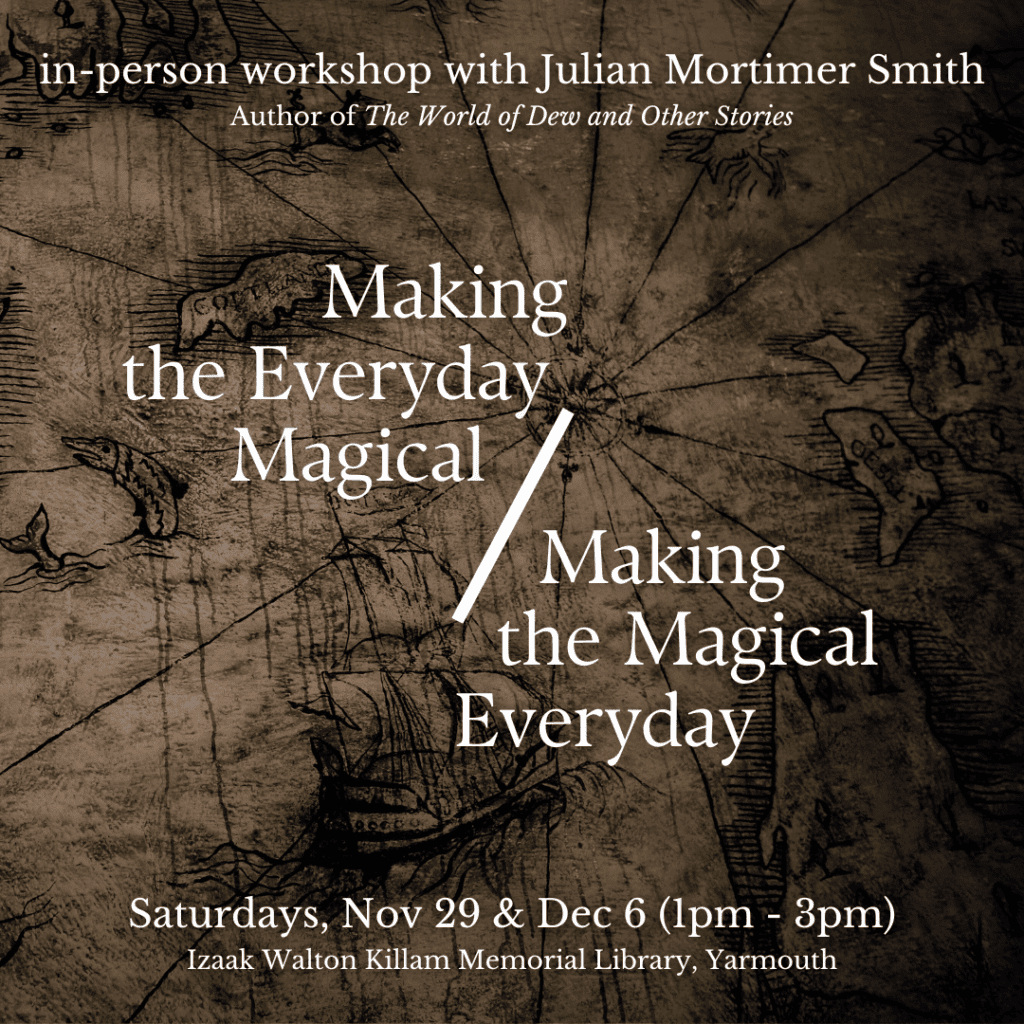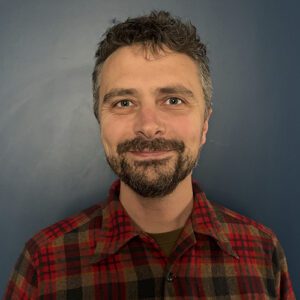
Making the Everyday Magical / Making the Magical Everyday (Yarmouth) with Julian Mortimer Smith
This workshop lies at the intersection of speculative fiction and realist fiction. Julian Mortimer Smith applies techniques from fantasy and sci-fi to realist narrative—and vice-versa. The goal is to “cross-pollinate,” offering useful techniques to writers working in any fiction genre.
The first workshop session will focus on bringing a sense of the fantastic to realistic fiction and creative nonfiction. Julian’s favourite writing imbues everyday events with a sense of magic. The right metaphor or turn of phrase can make even the most realistic prose seem magical or otherworldly. We’ll analyze some of those moments and examine what makes them special. Then we’ll try to create some of those moments ourselves using literary techniques that force readers to see everyday events in new ways.
The second workshop session will focus on bringing the everyday into speculative writing. The small details of domestic life may seem boring compared to dragons and spaceships, but they are often essential to making an imagined world feel real. By focusing on the texture of everyday life, fantasy and sci-fi writers can deepen immersion and make the speculative elements of a story seem more believable. We’ll explore how to integrate these details into a story without bogging down a plot with dull exposition.
About the instructor: Julian Mortimer Smith is an award-winning writer of speculative fiction. His stories have appeared in many of the world’s top science fiction and fantasy magazines and anthologies, including Asimov’s, Terraform, Lightspeed, and Best American Science Fiction and Fantasy. His first book, The World of Dew and Other Stories, won the 2020 Blue Light Books Prize and was published by Indiana University Press. Julian is an experienced writing instructor who had led workshops for the Writers’ Federation of Nova Scotia and the Western Counties Regional Library. He has also been an invited guest at Hal-Con, Y-Con, and other fan conventions. He believes that speculative fiction allows us to imagine different ways the world could be, which is an ever-more-important skill. He lives in Yarmouth, Nova Scotia.

Recommended experience level: New and emerging fiction writers, including those more experienced in other forms (About recommended experience levels)
Participant cap: 12
Location: Small Meeting Room of the Izaak Walton Killam Memorial Library (405 Main St, Yarmouth, NS)
[This library is a wheelchair-accessible venue with a wheelchair-accessible, all-gender washroom.]
Dates of 2-week workshop: Saturdays, Nov 29 + Dec 6, 2025 (1:00pm to 3:00pm)
Registration for 2025 General Members: $109
Registration for non-members: $109 (includes discounted fall 2025 General Membership in WFNS, a $30 value)
